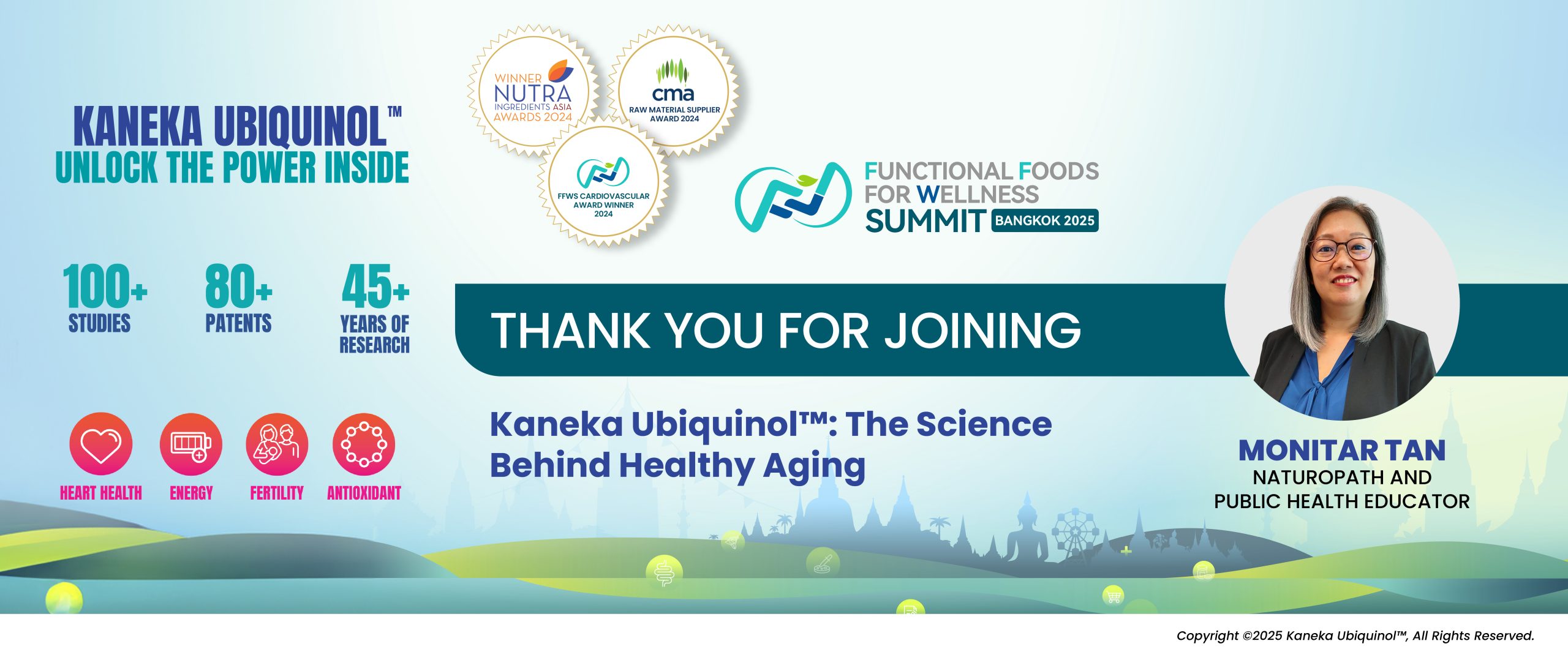Starts at 60: Beat the afternoon slump with energy-boosting supplements
Nov 2019Recent Article
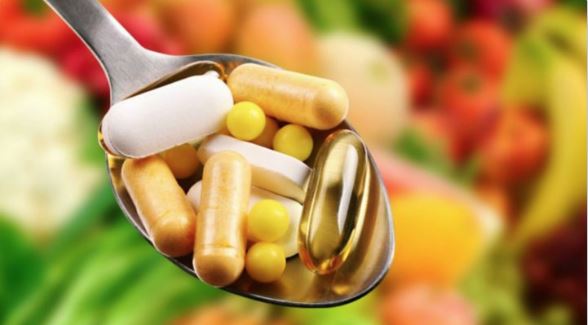
You no doubt know that a nutrient-rich diet and regular exercise can fight fatigue. But if you’re like most humans, your best efforts to eat right and get in at least a daily walk sometimes get derailed. That’s where dietary supplements come in instead.
With the help of Gerald Quigley, a leading pharmacist and accredited herbalist, we’ve looked at some of the most effective supplements for boosting energy.
Vitamin B
B vitamins are a must for energy production, Quigley says, explaining that a lack of vitamin B in the diet can cause tiredness and low energy levels.
B vitamins, such as B12, help the body convert food into energy – this process is called metabolism – but as we age, our ability to absorb B12 from food decreases, he says, explaining that supplements can offer the energy boost we’re no longer able to get as effectively from food.
B vitamins are also essential for heart function, brain health and healthy nerve cells.
If you would like to up your vitamin B intake from food alone, Quigley advises focusing on dairy products, red meat, chicken and eggs, which all contain the important vitamin.
Vitamin D
Vitamin D is essential for strong bones and muscles, but it also plays an important role in boosting your energy levels. B
Quigley says most older Australians don’t get enough of vitamin D, which not only can cause tiredness but lead to more serious health conditions such as a loss of bone density and cardiovascular disease.
To increase your vitamin D intake from food, you could eat more oily fish such as salmon, tuna and sardines, which are an excellent source of vitamin D, as well as more sun-grown mushrooms, milk and orange juice.
Omega-3 and omega-6 fatty acids
Omega-3 and omega-6 fatty acids are essential for good health, Quigley explains because they help with your joints and heart, as well as boosting energy.
“Research shows that fatty acid supplements can support the health of people who take anti-inflammatory drugs for poor joint issues,” he says. “Fatty acids may also play a role in reducing the risk of heart disease.”
Omega-3 fatty acids are found in oily fish, such as salmon, nuts, seeds and leafy green vegetables, whereas foods that are high in omega-6 fatty acids include certain nuts, such as walnuts, and oils including corn, sunflower, soy and vegetable.
Magnesium
If you’re low on energy, magnesium supplements may help to boost your energy levels and deliver other benefits.
“It’s not just ideal for boosting energy – magnesium also helps to promote good digestive health,” Quigley explains, adding that a magnesium deficiency can cause fatigue, muscles cramps, mental problems and high blood pressure.
If you’re not a fan of supplements, however, he recommends incorporating more leafy greens, legumes, nuts, seeds and whole grains into your daily diet.
Ubiquinol
Ubiquinol, the active form of Coenzyme Q10 (CoQ10), plays an essential role in producing energy and is one of the most powerful antioxidants found naturally in the body. Ubiquinol also supports healthy cardiovascular function, energy synthesis and may reduce low-density lipoprotein (LDL), or ‘bad’ cholesterol levels, but its production tends to decrease with age.
You can get ubiquinol through supplements or foods including broccoli, citrus fruits, nuts (such as pistachios, peanuts and sesame seeds), tuna, salmon, trout, pork, chicken and avocado.
Important information: The information provided on this website is of a general nature and information purposes only. It does not take into account your personal health requirements or existing medical conditions. It is not personalised health advice and must not be relied upon as such. Before making any decisions about your health or changes to medication, diet and exercise routines you should determine whether the information is appropriate in terms of your particular circumstances and seek advice from a medical professional.
As appeared on Starts at 60.
You can share this by:
Keep up-to-date with Ubiquinol News
Ubiquinol Headlines
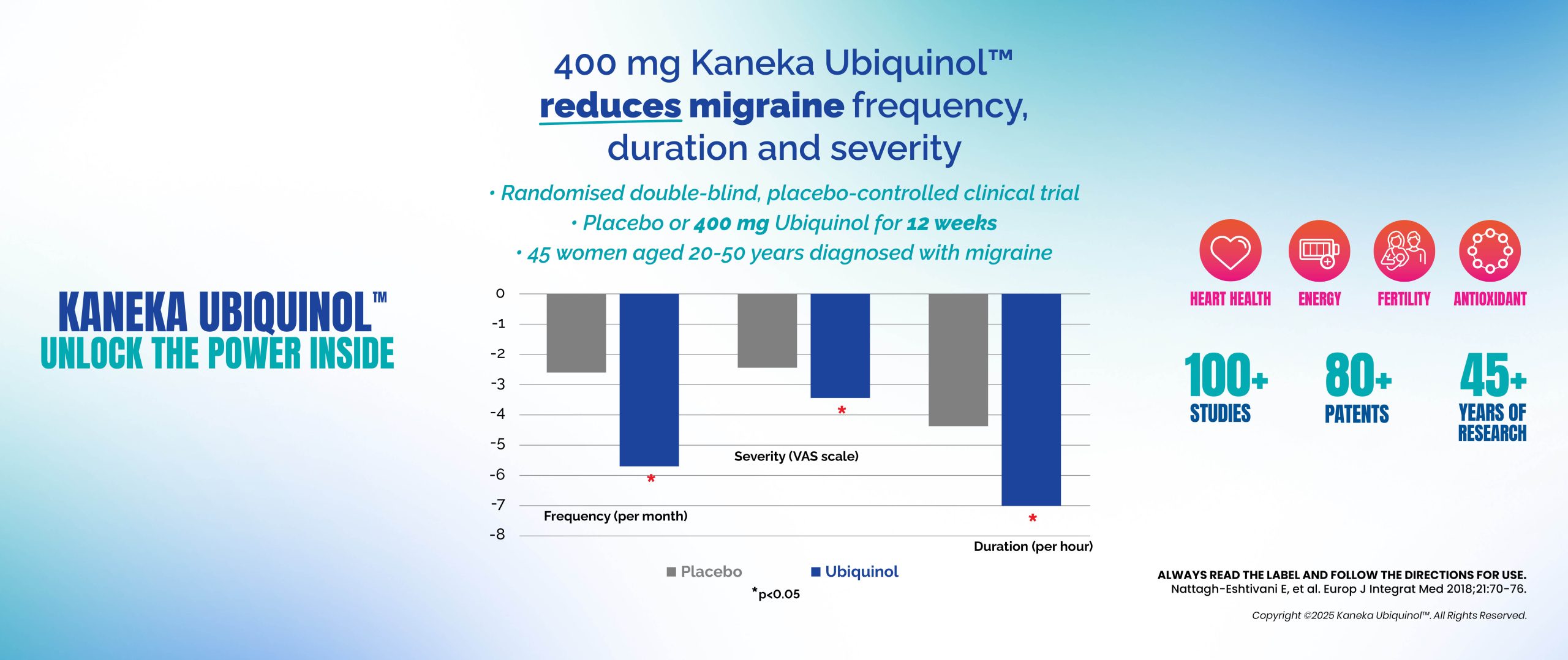
Ubiquinol: Supporting Migraine Relief Through Cellular Energy
Jan 2025Category: Antioxidants, complementary medicine, Energy, Fatigue, Health, Health Industry, healthy ageing, Kaneka, Mitochondrial health, Nutrition, Stress, Ubiquinol, Vitamins, wellnessRead More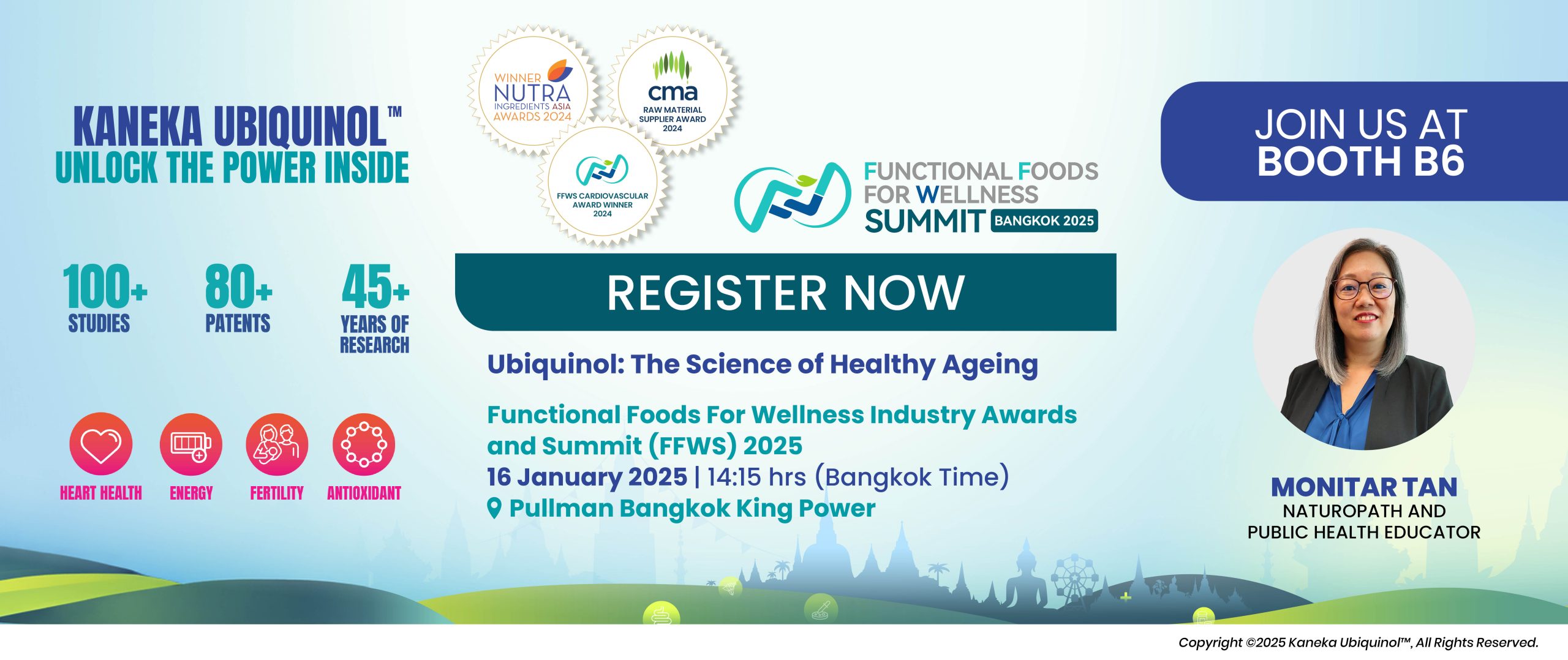
Kaneka Ubiquinol™ at Functional Foods for Wellness Industry Awards and Summit, #FFWS2025
Jan 2025Category: Ageing, Antioxidants, Awards, cardiovascular health, Conference, Conferences, Energy, Fatigue, FFWS2025, Health, Health Industry, healthy ageing, Kaneka, Menopause, Mitochondrial health, Nutrition, Ubiquinol, VitaminsRead More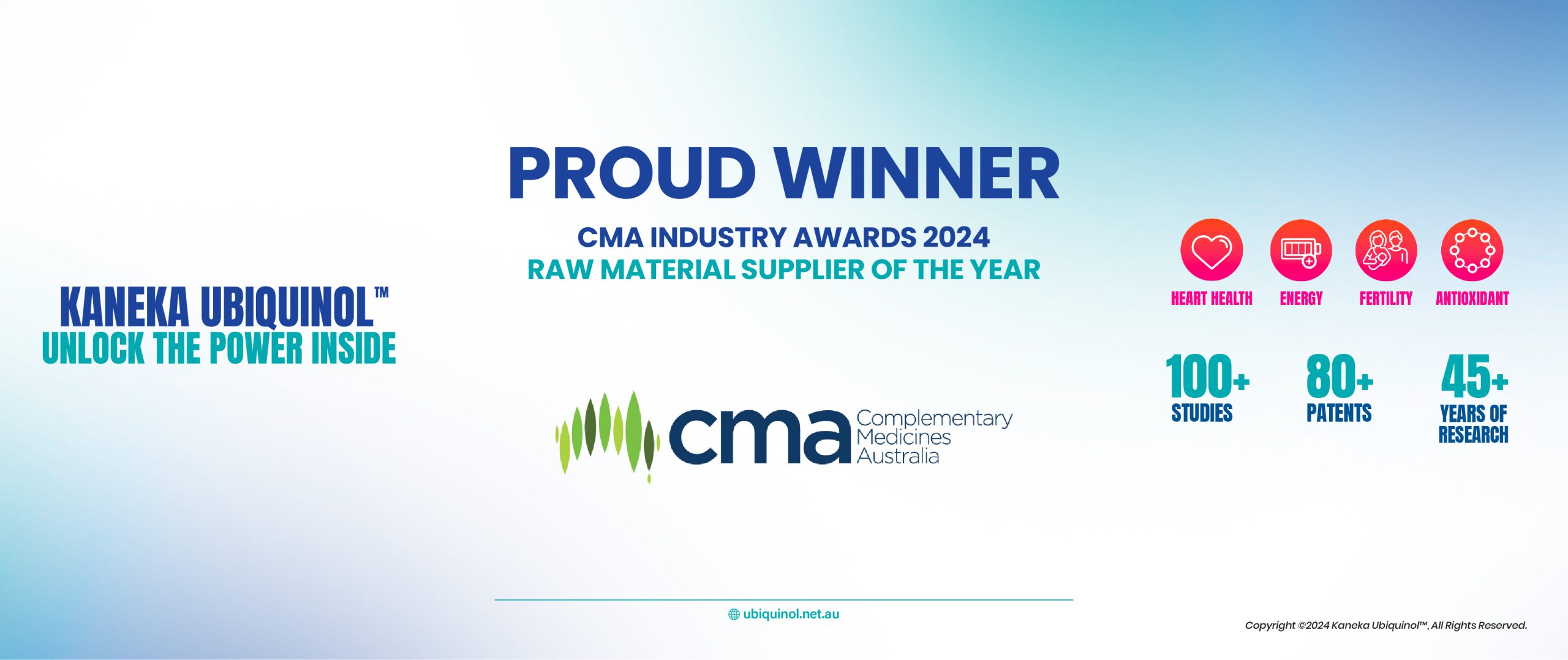
Kaneka Ubiquinol Wins Prestigious Complementary Medicines Raw Material Supplier of the Year Award 2024
Dec 2024Category: Ageing, Awards, cardiovascular health, complementary medicine, Conference, Conferences, Endurance, Energy, Fatigue, Fertility, Fitness, Health, Health Industry, healthy ageing, Heart, Immunity, In The News, Kaneka, Lungs, Memory, Mitochondrial health, Nutrition, Online, Stress, Ubiquinol, Vitamins, wellnessRead More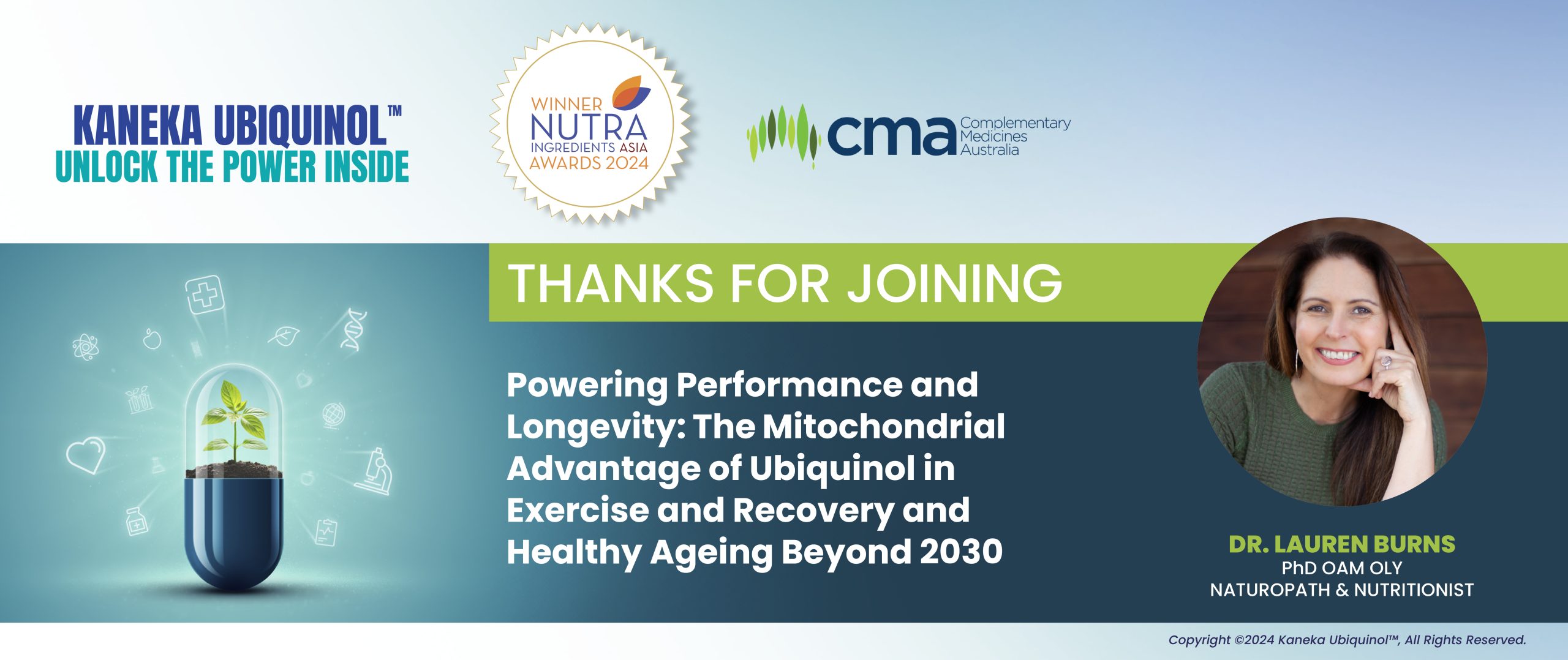
“Powering Performance and Longevity: Kaneka Ubiquinol™ at the CMA Annual Conference 2024”
Nov 2024Category: Ageing, Antioxidants, Awards, cardiovascular health, chronic fatigue syndrome, complementary medicine, Conference, Conferences, Endurance, Energy, Fatigue, Fertility, Fitness, Health, Health Industry, healthy ageing, Heart, In The News, Kaneka, Mitochondrial health, Online, Ubiquinol, VitaminsRead More
Natural Health Product Innovation Expo 2024
Nov 2024Category: Ageing, Antioxidants, cardiovascular health, Cholesterol, chronic fatigue syndrome, Conference, Conferences, Endurance, Energy, Fatigue, Fertility, Fitness, Health, Health Industry, healthy ageing, Heart, Kaneka, Menopause, Mitochondrial health, NHNZ, Nutrition, Stress, Ubiquinol, Vitamins, wellnessRead More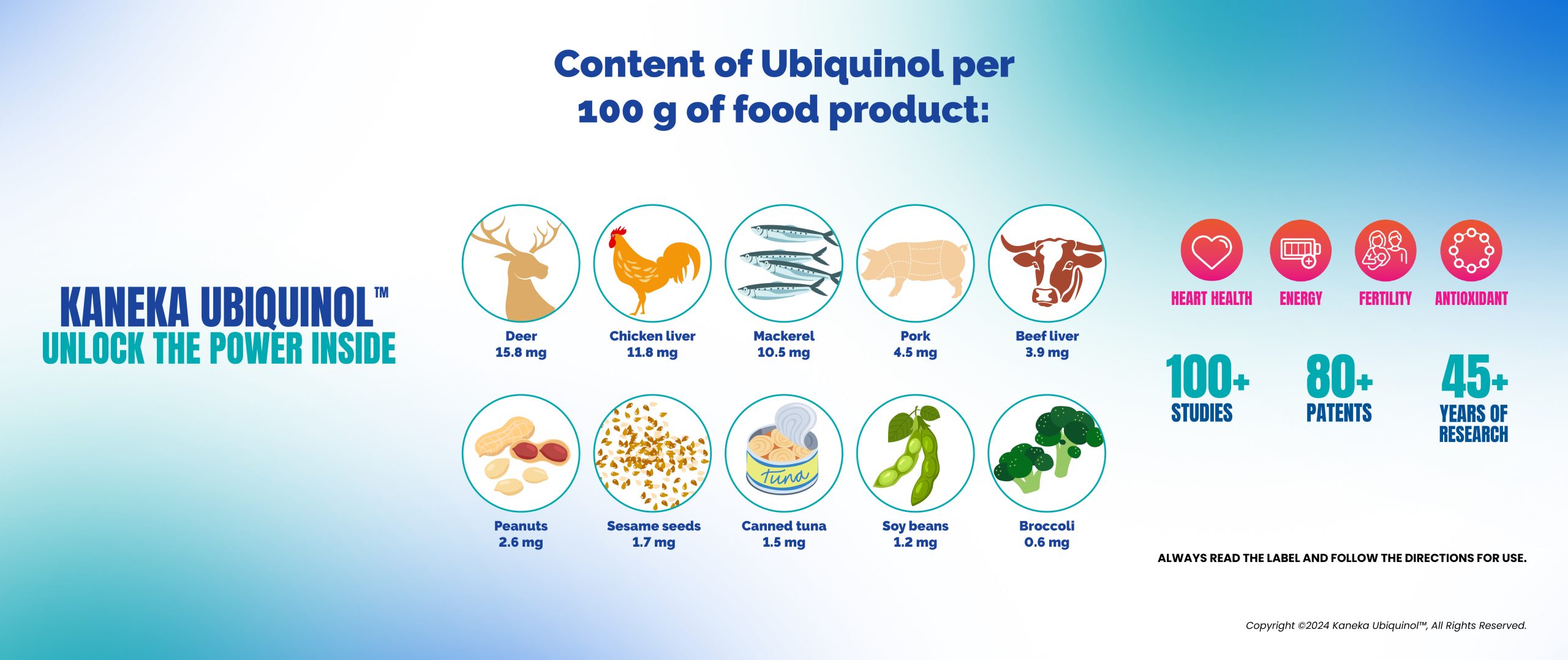
Ubiquinol: The Overlooked Nutrient for Vegans and Vegetarians
Oct 2024Category: Ageing, Antioxidants, Cholesterol, complementary medicine, Endurance, Energy, Fatigue, Fitness, Health, Health Industry, healthy ageing, Heart, Mitochondrial health, Nutrition, Stress, Ubiquinol, vitafoods, Vitamins, wellnessRead More
Investigating the Application of Ubiquinol in Mitochondrial Function
Oct 2024Category: Ageing, Antioxidants, cardiovascular health, Cholesterol, chronic fatigue syndrome, Endurance, Energy, Fatigue, Fertility, Fitness, Flu, Health, Health Industry, healthy ageing, Heart, Immunity, In The News, Kaneka, long covid, Lungs, Memory, Menopause, Mitochondrial health, myalgic encephalomyelitis, Nutrition, post pandemic, Stress, Ubiquinol, Vitamins, wellnessRead More


